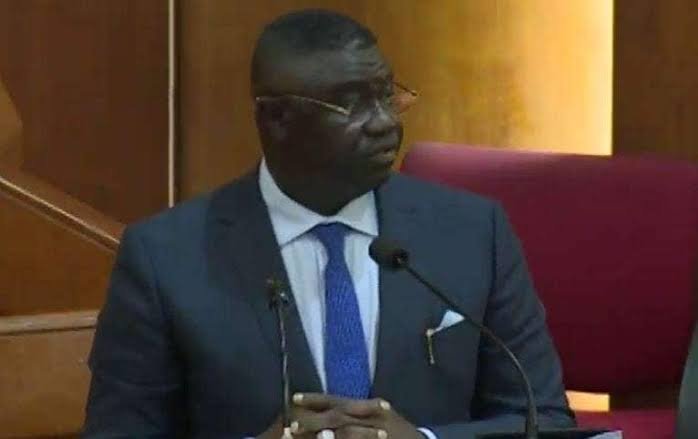By Aluta News
Mar. 17, 2022
The Federal Government has set up modeling laboratory and economic intelligence desk at the Ministry of Finance, Budget and National Planning (Planning Arm) to test proposed new policies before implementation.
The Minister of State, Budget and National planning, Mr Clem Agba, while inaugurating the Modeling Laboratory and Economic Intelligence Desk on Thursday in Abuja, said it was established as a macroeconomic analysis department to serve as a clinical laboratory or wind tunnel.
“This is where the technical officers of the ministry are expected to test proposed new policies before implementation; to study economic questions, test the cause and effect of macroeconomic problems,” Agba said.
He said that the data obtained from data generating agencies would be used in the laboratory to estimate the effects of public policies and test their validity.
Agba said that it would be a place where officers would conduct a range of in-house empirical research activities, use macroeconomic models to observe and examine behaviours of economic agents for a given policy change.
He said that it would be a platform for learning, mentoring for young officers to develop their skills and knowledge in economic method that are useful in National Planning.
He also said it would serve as an avenue for young officers to develop a scientific attitude and approach in addressing economic questions.
The minister said that the result obtained from the laboratory would be used to support the ministry’s consultation with stakeholders and institutions in the process of developing and implementing national plans and agenda.
Agba said that based on the ministry’s assessment and experience with application of models has identified key issues which has limited the use and relevance of past models in economic management in the country.
He said that the models were not domiciled within the ministry, data were a major challenge and constraints to developing a robust model that can address all sectors of the economy.
He added that the models had weak inter blocks, sectoral linkages, inadequate capacity development and skill enhancement of technical officers to operationalise the models.
Agba noted that high skilled staff turnover in key user institutions was preventing the development of institutional memory, limited ICT and institutional infrastructure to support regular maintenance of model, low funding for models development and maintenance activities.
He urged the stakeholders to support in local and foreign training of the ministry’s technical staff.
The ministry also commended the President Muhammadu Buhari, UNDP, International Monetary Fund (IMF), World Bank, GIZ, European Union and Central Bank of Nigeria (CBN), among others, for their constant support.
The IMF Resident Representative in Nigeria, Mr Ari Aisen, in his remarks said that the models required a lot of focus.
“I am delighted to be part of this project and will support it, you can count on us for anything and we are here to learn from what has been done,” Aisen said.
NAN


